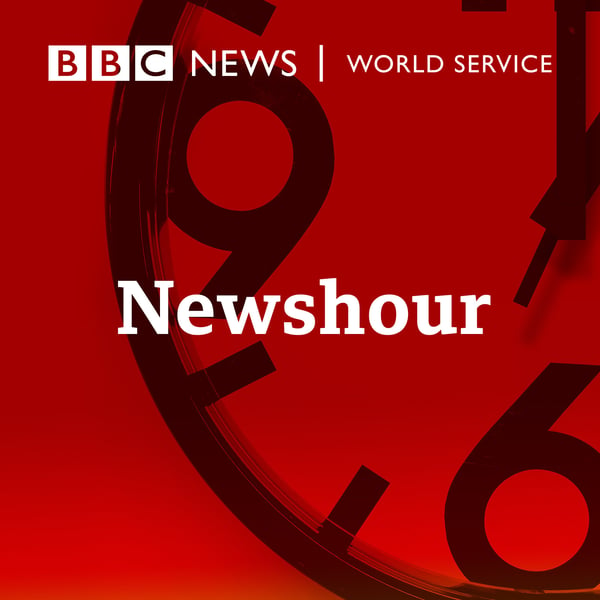UN Security Council holds emergency meeting over Iran nuclear strikes
Newshour
BBC
4.4 • 984 Ratings
🗓️ 22 June 2025
⏱️ 47 minutes
🧾️ Download transcript
Summary
The UN Security Council is holding an emergency meeting to discuss the US airstrikes on Iran's nuclear sites. The UN chief, Antonio Guterres, said that diplomacy and dialogue must prevail to prevent the Middle East from falling into a cycle of retaliation. We'll hear from a former security official in President Trump's first administration and assess the extent of the damage to Iran's nuclear operation caused by the US attacks.
Also in the programme: We speak to the wife of the Belarusian dissident Siarhei Tsikhanouski who has been released after five years in prison; and Syrian rescue workers say at least fifteen people have been killed in a suicide bombing at a church in the capital Damascus.
(Picture: UN Secretary-General Antonio Guterres addresses delegates during a meeting of the United Nations Security Council. Credit: Eduardo Munoz/Reuters)
Transcript
Click on a timestamp to play from that location
| 0:00.0 | Hello and welcome to NewsHour from the BBC World Service. |
| 0:06.1 | Coming to you live from London, I'm James Kamara Sami. |
| 0:09.4 | Nearly six decades after a six-day war changed the dynamics in the Middle East, |
| 0:14.1 | will a one-off US bombardment of Iran's nuclear sites have a similar impact? |
| 0:19.1 | Well, that seems to be what the United States hopes after |
| 0:21.2 | Donald Trump ended the guessing game about his intentions on Saturday and authorised what's |
| 0:26.2 | been called Operation Midnight Hammer. It was a massive strike on Iran that involved more than |
| 0:31.0 | 125 aircraft, including the B-2s, which carry so-called bunker buster bombs, the only one is |
| 0:37.3 | capable of reaching the underground nuclear enrichment plant at Fordo. |
| 0:42.4 | Flanked by his Vice President J.D. Vance, as well as his Secretary of State and Defense Secretary, |
| 0:47.9 | Mr. Trump strode to a White House lectern on Saturday night and shared the news with the nation. |
| 0:53.4 | A short time ago, the U.S. military carried out massive precision strikes |
| 0:58.6 | on the three key nuclear facilities in the Iranian regime, Fordot, Natanz, and Esfahan. |
| 1:09.2 | Our objective was the destruction of Iran's nuclear enrichment capacity and a stop to the nuclear threat |
| 1:16.9 | posed by the world's number one state sponsor of terror. At a news conference this morning, the U.S. |
| 1:23.1 | Defense Secretary Pete Hegzeth stressed that the goals of the operation were strictly limited. |
| 1:28.9 | This mission was not and has not been about regime change. |
| 1:33.3 | The President authorized a precision operation to neutralize the threats to our national interests |
| 1:40.1 | posed by the Iranian nuclear program and the collective self-defense of our troops |
| 1:45.7 | and our ally Israel. |
| 1:48.4 | For its part, Iran says that nuclear material |
| 1:50.9 | was preemptively removed from the sites that were attacked, |
... |
Transcript will be available on the free plan in 3 days. Upgrade to see the full transcript now.
Disclaimer: The podcast and artwork embedded on this page are from BBC, and are the property of its owner and not affiliated with or endorsed by Tapesearch.
Generated transcripts are the property of BBC and are distributed freely under the Fair Use doctrine. Transcripts generated by Tapesearch are not guaranteed to be accurate.
Copyright © Tapesearch 2025.

